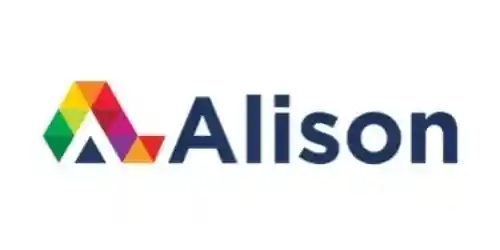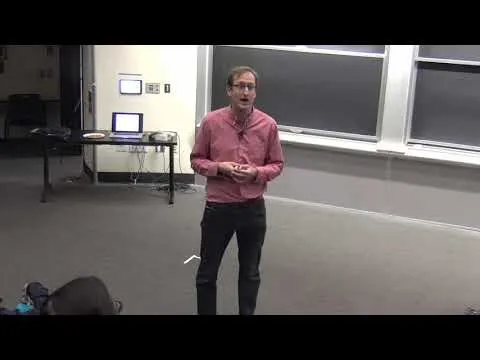
Genes and Responsive Drug Delivery Systems 
Discover the fascinating world of genes and their potential in drug delivery systems with this free course. Explore the use of gene vaccines as a cancer therapy and vaccine, and learn about targeted and responsive delivery systems. Understand the difference between viral and non-viral carriers for drug and vaccine delivery, and discover the role of polyethyleneimine as a carrier. Dive into DNA vaccination and immunization, and even explore the use of immunization against food allergies. Uncover the secrets of key cellular functions and cancer therapeutic vaccines, and delve into the world of targeted and responsive delivery systems. Don't miss out on this opportunity to expand your knowledge in this cutting-edge field. ▼
ADVERTISEMENT
Course Feature
![]() Cost:
Cost:
Free
![]() Provider:
Provider:
Alison
![]() Certificate:
Certificate:
No Information
![]() Language:
Language:
English
Course Overview
❗The content presented here is sourced directly from Alison platform. For comprehensive course details, including enrollment information, simply click on the 'Go to class' link on our website.
Updated in [September 26th, 2023]
What does this course tell?
(Please note that the following overview content is from the original platform)
The idea of genes as both a delivery system as well as a type of vaccine is the central thrust of this free course. You will study gene delivery with vectors and polymers, and look at the use of gene vaccines as a cancer therapy and cancer vaccine. You will then study targeted and responsive delivery systems and their fundamental properties.
Next, learn the difference between viral and non-viral carriers for drug delivery and vaccine delivery and how polyethyleneimine is used as a carrier. You will look at DNA vaccination and immunization and how this occurs, as well as briefly tackling the use of immunization against food allergies. In addition to this, key cellular functions and cancer therapeutic vaccines will be analyzed before moving onto discuss key responsive delivery systems.
Finally, you will study multiple forms of delivery systems, focusing on targeted and responsive systems, specifically. Tackle stimuli-sensitive and smart systems, and delve into magnetically controlled systems as well as the effects of temperature on temperature-responsive (or thermoresponsive) hydrogels. You will end the course by briefly studying toxicology and its translation pathways.
We considered the value of this course from many aspects, and finally summarized it for you from two aspects: skills and knowledge, and the people who benefit from it:
(Please note that our content is optimized through artificial intelligence tools and carefully reviewed by our editorial staff.)
What skills and knowledge will you acquire during this course?During this course, learners will acquire the following skills and knowledge:
1. Understanding gene delivery: Learners will study the use of vectors and polymers as delivery systems for genes. They will explore how genes can be used as both a delivery system and a type of vaccine.
2. Gene vaccines for cancer therapy: Learners will examine the use of gene vaccines as a potential therapy for cancer. They will explore how gene vaccines can be used to target and treat cancer cells.
3. Targeted and responsive delivery systems: Learners will learn about targeted and responsive delivery systems and their fundamental properties. They will understand how these systems can be designed to deliver drugs or vaccines to specific targets in the body.
4. Viral and non-viral carriers for drug and vaccine delivery: Learners will differentiate between viral and non-viral carriers for drug and vaccine delivery. They will specifically study the use of polyethyleneimine as a carrier.
5. DNA vaccination and immunization: Learners will explore the concept of DNA vaccination and immunization. They will understand how this process works and its potential applications.
6. Immunization against food allergies: Learners will briefly examine the use of immunization for treating food allergies. They will understand the principles behind this approach.
7. Cellular functions and cancer therapeutic vaccines: Learners will analyze key cellular functions and their relevance to cancer therapeutic vaccines. They will understand how these vaccines can be used to target and treat cancer.
8. Stimuli-sensitive and smart delivery systems: Learners will study different forms of delivery systems, focusing on stimuli-sensitive and smart systems. They will understand how these systems can respond to specific stimuli to release drugs or vaccines.
9. Magnetically controlled delivery systems: Learners will delve into magnetically controlled delivery systems. They will understand how magnetic fields can be used to control the release of drugs or vaccines.
10. Temperature-responsive hydrogels: Learners will explore the effects of temperature on temperature-responsive (or thermoresponsive) hydrogels. They will understand how these hydrogels can be used in drug or vaccine delivery.
11. Toxicology and translation pathways: Learners will briefly study toxicology and its translation pathways. They will understand the importance of considering toxicology in the development of drug delivery systems.
Who will benefit from this course?
This course on Genes and Responsive Drug Delivery Systems will benefit individuals in the field of biomedical research, pharmaceuticals, and healthcare. Specifically, it will be useful for:
1. Biomedical researchers: Researchers studying gene delivery systems, targeted drug delivery, and responsive drug delivery systems will gain valuable insights from this course. They will learn about the use of genes as delivery systems and vaccines, as well as the different carriers for drug delivery.
2. Pharmaceutical professionals: Professionals working in the pharmaceutical industry, especially those involved in drug development and delivery, will find this course beneficial. They will learn about the different types of carriers for drug delivery, including viral and non-viral carriers, and gain knowledge about the use of polyethyleneimine as a carrier.
3. Healthcare professionals: Healthcare professionals, such as doctors and nurses, who are involved in cancer therapy and vaccination, will benefit from this course. They will learn about the use of gene vaccines as a cancer therapy and cancer vaccine, as well as DNA vaccination and immunization.
4. Researchers and professionals in immunology: Individuals working in the field of immunology will find this course relevant. They will gain insights into immunization against food allergies and the use of immunization in cancer therapeutic vaccines.
5. Researchers and professionals in drug delivery systems: Individuals involved in the development and research of drug delivery systems will find this course valuable. They will learn about targeted and responsive delivery systems, including stimuli-sensitive and smart systems, magnetically controlled systems, and temperature-responsive hydrogels.
Course Syllabus
Gene Delivery and Other Variants
In this module, Gene Delivery and Other Variants, you will learn the fundamentals of Gene Delivery with vectors as well as Polymers. You will also learn how genes can be used as vaccines and how Cancer Vaccines and Immunotherapy are created and used.Responsive and Targeted Delivery Systems
In this module, Responsive and Targeted Delivery Systems, you will learn about Stimuli-Sensitive and Smart Systems and how certain systems can be controlled magnetically. You will also learn the fundamentals of Sensitive Hydrogels and how temperature can create certain responses. Finally, you will be introduced to the Nanotoxicology and Translation Pathways.Course assessment
Course Provider

Provider Alison's Stats at AZClass
Discussion and Reviews
0.0 (Based on 0 reviews)
Explore Similar Online Courses

A Complete Edit and Color Grading Guide Using DaVinci Resolve 17

Brain test Level 40 we must be ready before the guests arriveWalkthrough

Python for Informatics: Exploring Information

Social Network Analysis

Introduction to Systematic Review and Meta-Analysis

The Analytics Edge

DCO042 - Python For Informatics

Causal Diagrams: Draw Your Assumptions Before Your Conclusions

Whole genome sequencing of bacterial genomes - tools and applications

12 Genetics 1 : Cell Division & Segregating Genetic Material
![[LIVE] Learn Genetic Engineering - Part 1: How does it work?](/ccsimg/dcs/img_tools/6b8f615b15bbd31a67f1880c9bd53dd0.webp)
[LIVE] Learn Genetic Engineering - Part 1: How does it work?


Start your review of Genes and Responsive Drug Delivery Systems